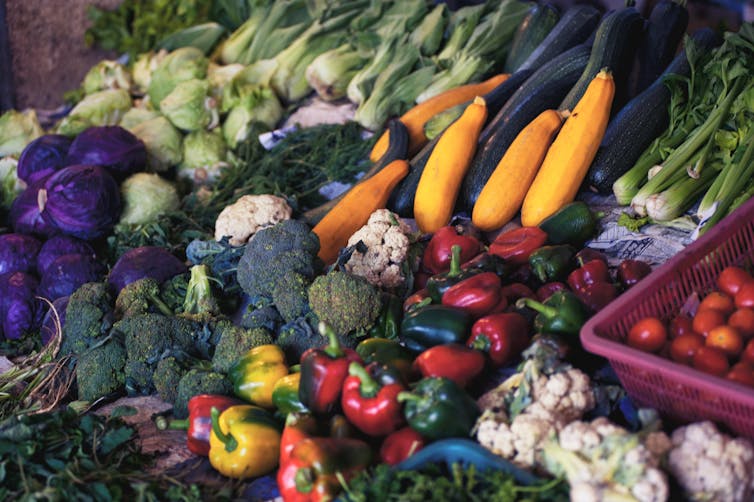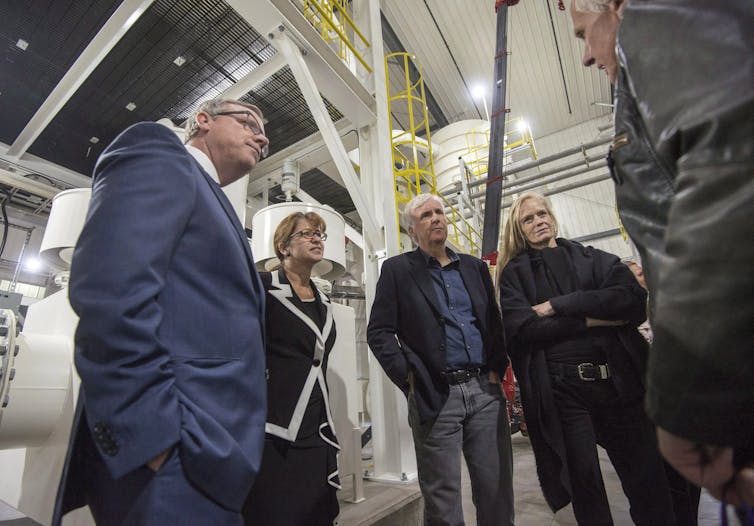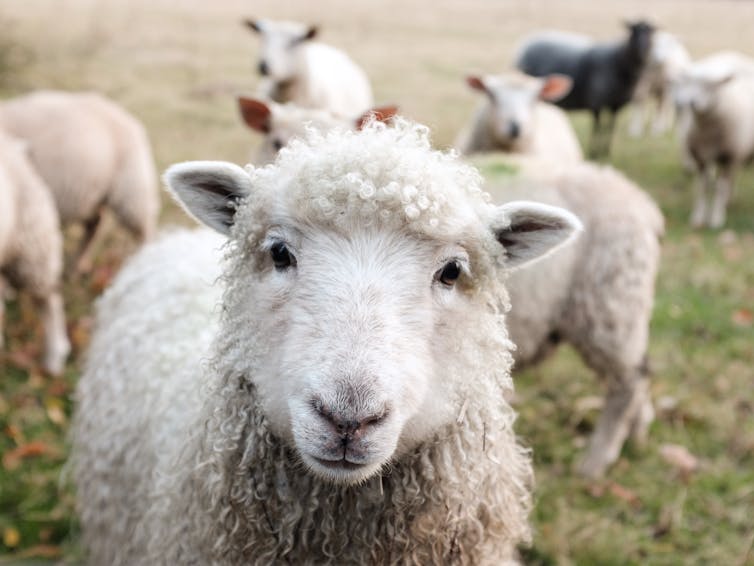This article was originally published on┬Ā, which features includes relevant and informed articles, written by researchers and academics in their areas of expertise and edited by experienced journalists.
is Associate Professor, Sustainable Food Systems and Director of Rural Research Centre at
We must believe that we are capable of creating ŌĆ£a place of love and mutual assistance and understanding.ŌĆØ This is how ŌĆ£I donŌĆÖt think he was na├»ve.ŌĆØ
Our current climate change crisis calls for this type of bold, inspiring and transformative action. The book Drawdown, The Most Comprehensive Plan to Reverse Global Warming, put out by , explains, maps, measures and models solutions that are already in place.
ŌĆ£Drawing downŌĆØ occurs when we succeed in reducing the concentration of greenhouse gases in the atmosphere on a year-to-year basis. This is not a daydream. We are currently achieving this on a small scale. If we scale up these efforts we can
Escalating climate change . It is not too vast or too hard or too complex for us to tackle. It is the most important goal for humanity to undertake at this time.
Eight of the top 25 actions to achieve this reversal involve food. Each one of us can rethink the food we are producing, eating and wasting. And we can call for more government and industry action to support sustainable food systems.

offers one way. This diet encourages mindful eating. Advocates say that many animal-based eaters become so largely because of cultural, social and familial pressures. They argue that it is not necessary to carry on these unexamined and outmoded traditions.
Food impacts everything
Eating is personal, public and political and impacts all aspects of human life. Nothing more fully and powerfully influences the daily lives of everyone than our food, food choices and food systems. Food is a tool to nourish life but also for taking political action and for averting the dangers of climate change and preventing unnecessary harm.
If we shift to plant-based diets and plant-rich living, When we channel grains and legumes to animals and away from human consumption we make it
An array of ŌĆö diet-related diseases, , hunger as well as obesity, escalating health-care costs, animal commodification, along with water and air pollution, biodiversity loss and soil deterioration and land degradation.

As it takes many times the resources to produce the same amount of food through animal products,
Many researchers and activists are
shows that animal agriculture ŌĆö meat production and consumption ŌĆö is heating up and polluting the planetŌĆÖs resources.
Sustainability researcher Marco Springmann and his team, with the and the predict that the global adoption of a vegetarian diet would result in A massive swing to a vegan diet, of obesity, hypertension, Type 2 diabetes and cardiovascular mortality.
The hosts events to educate the public that plant-based diets can prevent diseases. And a political, social and spiritual movement challenges us when saying, ŌĆ£If we can live well without causing unnecessary harm, why wouldnŌĆÖt we?ŌĆØ
Leaders of such organisations imagine a world where all beings are fed, loved and nurtured. It seems such imaginings offer pretty good returns. We will all benefit from the outcomes of this type of diet change: and
Plant-rich living, mindful eating
Animals suffer and lose their lives to the food system, but workers in slaughterhouses also face precarious, psychologically demanding, low-paying jobs.
As writer Jonathan Safran Foer suggests, this system often treats Human workers fare only slightly better. Slaughterhouse work is physically demanding and exacts

Maybe our ignorance is not so surprising. The opaque nature of our food systems - including concentrated animal feeding operations (CAFOs) - is by design. Ag-Gag laws, are present in ŌĆ£virtually every significant livestock producing state.ŌĆØ
When it comes to food choices, we are encouraged not to examine exploitative relationships with animals or other people. Humans have become ŌĆśrationalizing, ready to
By reducing animal agriculture, we also could improve health, stabilize grain prices, enhance food security and prevent unnecessary harm and violence. Will Tuttle, :
ŌĆ£Food is a source and metaphor of life, love, generosity, celebration, pleasure, reassurance, acquisition and consumption. While concurrently, it can be a metaphor of control, domination, cruelty, and death. Eating can be a purposeful, intimate act, a regime of self-care and love, and a powerful political message.ŌĆØ In the wise words of the Lorax by Dr. Seuss, ŌĆ£Unless someone like you cares a whole awful lot, Nothing is going to get better. ItŌĆÖs not.ŌĆØ
We can choose a non-violent lifestyle. We could choose not to take a life to eat. We could eat an array of nuts, seeds, legumes, fruits and vegetables to meet our nutritional requirements without giving up on taste or satisfaction.
Movie director, James Cameron isnŌĆÖt launching because he thinks it will be an idea that will fade. This is the way forward.
Peas are loaded with helpful They provide high fiber, low fat and a powerful source of vegetable protein. And when fresh they taste like summer in your mouth.
Choosing peas can help to build the place of love and mutual assistance and understanding that John Perry Barlow envisioned. Food could be our greatest vehicle for more peaceful, mindful and sustainable living.![]()
Read the on The Conversation.
▒½ėŃtv University is a founding partner of The Conversation Canada, a new-to-Canada online media outlet providing independent, high-quality explanatory journalism. Originally established in Australia in 2011, it has had more than 85 commissioning editors and 30,000-plus academics register as contributors. A full list of articles written by ▒½ėŃtv academics can be found on┬Ā.

